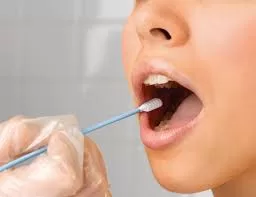Radboudumc and UMC Utrecht Researchers Find Saliva More Accurate in Gauging Infection Severity
Kangra, August 9, 2024 — A groundbreaking study has revealed that saliva tests are more effective than blood tests in diagnosing and assessing the severity of recurrent respiratory infections in children. The research, conducted by a team from Radboudumc Amalia Children’s Hospital and UMC Utrecht Wilhelmina Children’s Hospital in the Netherlands, offers new hope for a more accurate and less invasive diagnostic approach for pediatric patients.
Respiratory infections, which affect 10-15% of children, are a significant concern for parents and healthcare providers alike. Traditionally, blood tests have been the standard method for detecting antibody deficiencies, a potential underlying cause of these recurrent infections. However, the findings of this new study, released on Thursday, challenge this conventional practice.
Key Findings: Saliva’s Diagnostic Superiority
The study revealed that lower levels of broadly protective antibodies in saliva are strongly linked to an increased risk of pneumonia episodes in children. This discovery underscores the potential of saliva as a more accurate diagnostic tool, offering vital insights into disease severity while being far more comfortable for young patients.
“This is challenging for pediatricians because we really want to help the children,” said Dr. Lilly Verhagen, a pediatric infectious disease specialist at Radboudumc. “We explored whether saliva testing could better indicate disease severity, which would help determine which children need more intensive care or antibiotic treatment.”
The research involved 100 children with recurrent respiratory infections, and the results were striking: saliva measurements were found to be significantly more effective than blood tests in determining the severity of infections.
A New Understanding of Antibodies and the Microbiome
“We observed no correlation between blood antibodies and disease burden, but saliva revealed broadly protective antibodies that combat a range of pathogens,” explained Mischa Koenen, a doctoral student at UMC Utrecht. “Children with lower levels of these antibodies experienced more severe infections.”
These broadly protective antibodies, crucial in fighting off respiratory pathogens, were not only found in the saliva of the children studied but also in their healthy siblings, parents, and caregivers. Remarkably, even saliva samples taken before the COVID-19 pandemic contained antibodies capable of binding to the SARS-CoV-2 virus, the virus responsible for the global pandemic.
The study also delved into the role of the airway microbiome, with a particular focus on the bacterium Haemophilus influenzae. This bacterium was strongly associated with severe respiratory infections, especially during the winter months.
Implications for Future Pediatric Care
Looking ahead, the research team suggests that incorporating saliva and nasopharyngeal mucosal measurements into routine assessments could significantly enhance the ability of healthcare providers to tailor treatments to the specific needs of children. This approach could lead to more effective interventions and may eventually replace some follow-up blood tests, making diagnostics more child-friendly.
This pioneering study opens the door to improved diagnostic practices for recurrent respiratory infections in children, potentially transforming pediatric care and offering new hope to countless families.












